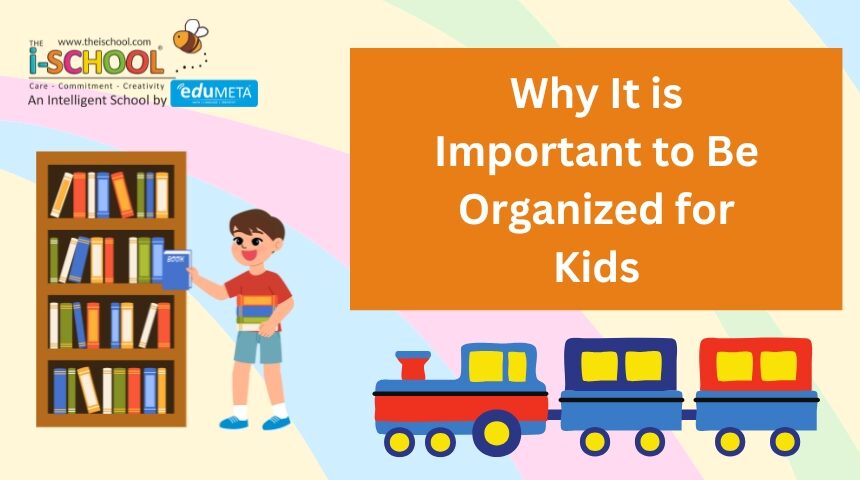Why It is Important to Be Organized for Kids

Organization is a crucial skill that helps children succeed in various aspects of their lives, from school to extracurricular activities and even at home. Being organized allows kids to manage their time effectively, stay on top of their responsibilities, and reduce stress. This article explores the importance of organization for kids and provides practical tips for helping them develop this essential skill.
The Benefits of Being Organized for Kids
Improved Academic Performance
One of the most significant benefits of being organized is improved academic performance. Organized students can keep track of assignments, deadlines, and study schedules more effectively. This leads to better preparation for tests and timely completion of homework, ultimately resulting in higher grades and a more positive attitude toward school.
Enhanced Time Management Skills
Being organized helps children develop strong time management skills. They learn to prioritize tasks, allocate appropriate amounts of time to different activities, and avoid last-minute rushes. These skills are not only useful in school but also in managing extracurricular activities and personal interests.
Reduced Stress and Anxiety
A cluttered and chaotic environment can lead to increased stress and anxiety for children. By maintaining an organized space, kids can create a sense of order and control in their lives. This reduces feelings of overwhelm and helps them approach tasks with a clearer, more focused mind.
Greater Independence and Responsibility
Teaching children to be organized fosters a sense of independence and responsibility. When kids learn to manage their own schedules, keep track of their belongings, and complete tasks on time, they become more self-reliant. This independence boosts their confidence and prepares them for future responsibilities.
Better Problem-Solving Skills
Organization encourages children to think critically and plan ahead. These skills are essential for effective problem-solving. When faced with a challenge, organized kids can break it down into manageable steps and approach it systematically, leading to more successful outcomes.
Practical Tips for Teaching Kids to Be Organized
Create a Daily Routine
Establishing a consistent daily routine helps children develop a sense of structure and predictability. Include specific times for homework, chores, play, and other activities. A well-defined routine makes it easier for kids to know what to expect and manage their time effectively.
Use Visual Aids
Visual aids such as calendars, planners, and checklists can be incredibly helpful for kids. Encourage them to use these tools to keep track of assignments, deadlines, and upcoming events. Visual reminders make it easier for children to stay organized and on top of their responsibilities.
Set Clear Expectations
Clear expectations and guidelines help children understand what is required of them. Define specific tasks and responsibilities, such as keeping their room tidy, completing homework before playing, or preparing their school bag the night before. Consistency in expectations reinforces the importance of organization.
Encourage Decluttering
A clutter-free environment promotes better organization. Regularly encourage children to declutter their spaces, such as their bedrooms, study areas, and backpacks. Teach them to sort through their belongings, keep only what they need, and find designated places for everything.
Involve Kids in Planning
Involving children in planning their schedules and activities fosters a sense of ownership and responsibility. Encourage them to participate in creating their daily routines, setting goals, and planning for projects. This involvement helps them understand the importance of organization and its impact on their lives.
Reward and Reinforce
Positive reinforcement can motivate children to develop and maintain organizational habits. Praise their efforts and achievements in staying organized. Consider implementing a reward system where they earn small incentives for consistently meeting organizational goals.
Lead by Example
Children learn by observing their parents and caregivers. Model good organizational habits in your own life. Show them how you manage your time, keep track of responsibilities, and maintain a clutter-free environment. Your actions will serve as a powerful example for them to follow.
Conclusion
Being organized is a vital skill that significantly impacts a child’s academic success, emotional well-being, and overall development. By teaching kids the importance of organization and providing them with the tools and guidance they need, parents and caregivers can help them build a strong foundation for a successful and stress-free life. Start implementing these practical tips today to nurture organized, confident, and independent children.
